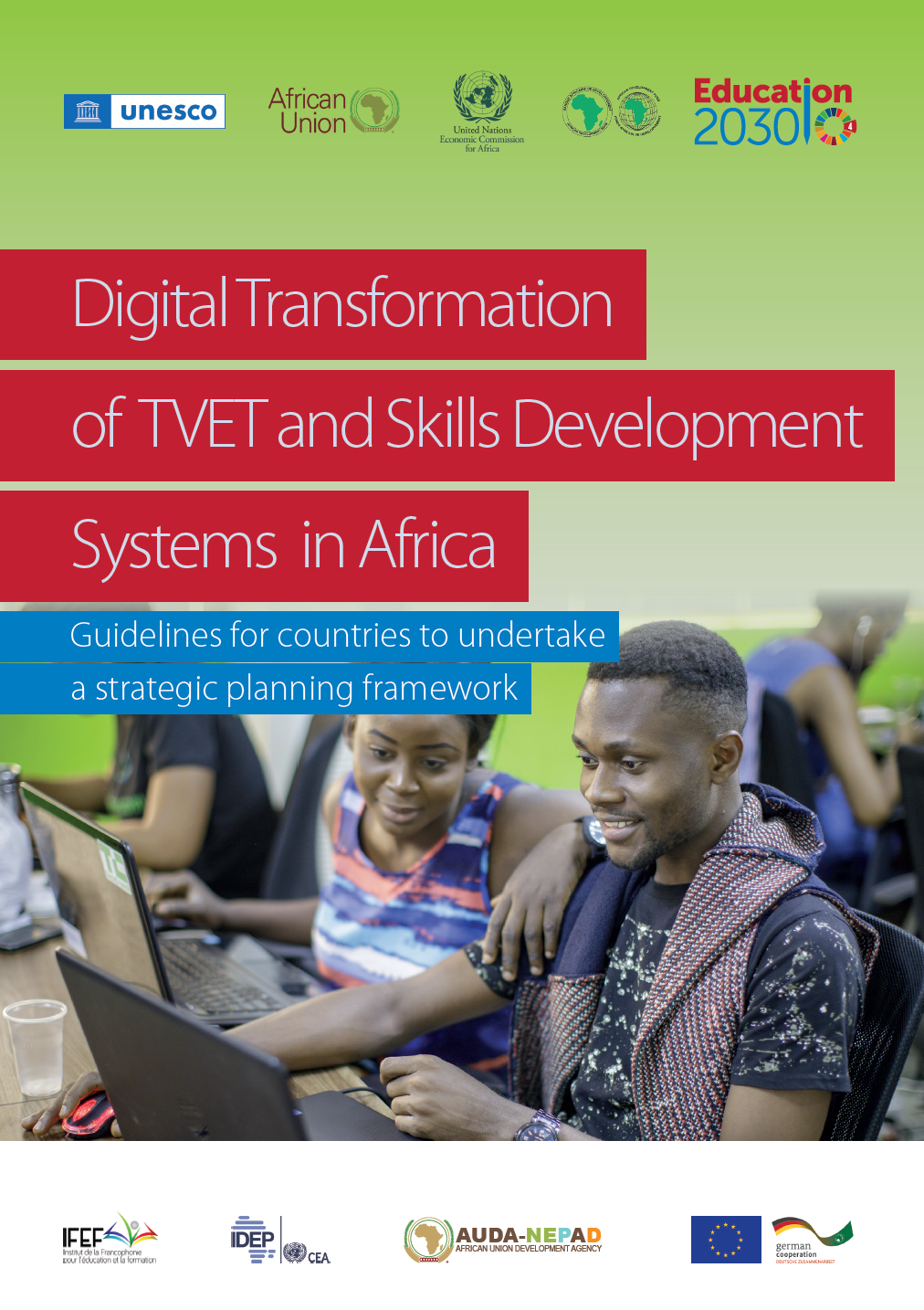
The UNESCO-UNEVOC International Centre: Who We Are | What We Do | Working With Us | Get in Touch
The UNEVOC Network: Learn About the Network | UNEVOC Network Directory
For Members: UNEVOC Centre Dashboard
Thematic Areas: Inclusion and Youth | Digital Transformation | Private Sector Engagement | SDGs and Greening TVET
Our Key Programmes & Projects: BILT: Bridging Innovation and Learning in TVET | Building TVET resilience | TVET Leadership Programme | WYSD: World Youth Skills Day
Past Activities: COVID-19 response | i-hubs project | TVET Global Forums | Virtual Conferences | YEM Knowledge Portal
Our Services & Resources: Publications | TVET Forum | TVET Country Profiles | TVETipedia Glossary | Innovative and Promising Practices | Toolkits for TVET Providers | Entrepreneurial Learning Guide
Events: Major TVET Events | UNEVOC Network News

| Author/s: | The Pan African Initiative for the Digital Transformation of TVET and Skills Development Systems in Africa |
| Published: | 2023 |
These guidelines follow the publication of Digital Transformation of TVET and Skills Development Systems in Africa - Guidelines for countries to undertake a situational analysis (‘the Situational Analysis Guidelines’).
In concert with the situation analysis guidelines, these guidelines are based on primary research commissioned by UNESCO and the ILO (2020) and ILO’s ‘five building blocks’ conceptual framework for TVET and skills development systems (2021).
In practice, many of the elements in the building blocks are inter-dependent: a framework involves complex interactions between individual learners, workers and the labour market as well as a range of institutions and stakeholders in the public and private sectors. These institutions include education and training providers, regulatory bodies and intermediaries such as public and private employment services, business support services, and local and regional authorities. There are complex financing and data flows, assessment and certification systems and interactions with different policy domains where the politics of skills formation impact the programmes and policies that are in operation.